Top 9 Paraguay Culture, Customs, and Etiquette
Paraguay is a South American country that is landlocked. Despite the fact that Paraguay only recently became a democracy, the country remains relatively ... read more...isolated, particularly in the more rural communities. To ensure a trouble-free stay in Paraguay, you should be fully aware of the people's social customs and etiquette. So, here is a list of Paraguay culture, customs, and etiquette that Toplist offers you.
-
At the diner, topics of conversation should veer away from political or religious discussions, unless initiated by your host. As an ‘outsider’, it would be seen as very bad etiquette for you to openly criticize the Paraguayan Government or military, and any of their policies.
Try to familiarize yourself with proper table manners. Do not sit down until you are invited to and told where to sit. Do not begin eating until the hostess starts. Always keep your hands visible when eating. Keep your wrists resting on the edge of the table. When you have finished eating, place your knife and fork across your plate with the prongs facing down and the handles facing to the right.
When dining out in Paraguay, etiquette dictates that you should make an extra effort with your dress and appearance. You should dress more formally – shorts, trainers and sportswear are definitely not appropriate.
Whilst you are eating, it is more than likely that you will be offered second helpings of food. It is considered good manners to graciously accept another help. You should also be aware that it is polite to leave a little food on your plate once you have finished. This shows the host or hostess that you have been sufficiently fed and have not been left hungry.

theculturetrip.com 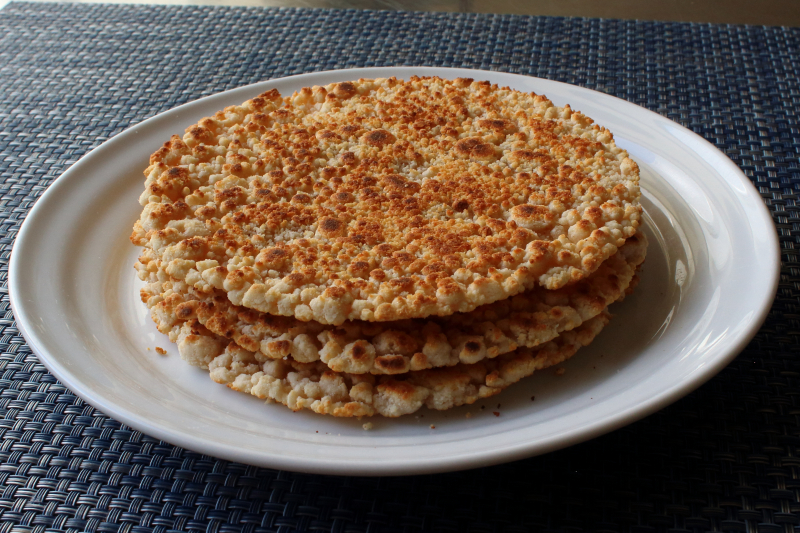
allrecipes.com -
Paraguayans have little awareness of the value and importance of time. Nothing runs on time, and being a few minutes late to a meeting is not uncommon and isn't considered rude. People do not share the same sense of the importance of keeping to clock time as northern Europeans and North Americans conventionally do; they are closer in this regard to Merranean and other Latin American cultures.
Visitors from outside Latin America may find it frustrating at first that schedules and timetables are not followed strictly, and perceive frequent ‘lateness’. Flights and intercity buses may not run to schedule. Arriving late to a meeting is common in Paraguay and should not be considered rude. In contrast, punctuality in foreign visitors is admired.
Paraguayans may be late, but visitors are expected to be punctual for business meetings. Business appointments often begin 10 to 20 minutes late. Therefore, when setting up a meeting, either private or for businesses you should be aware that your Paraguayan counterpart will probably be late, maybe even really late. With time, even the most punctual expat will get accustomed to this habit of their new co-patriots.
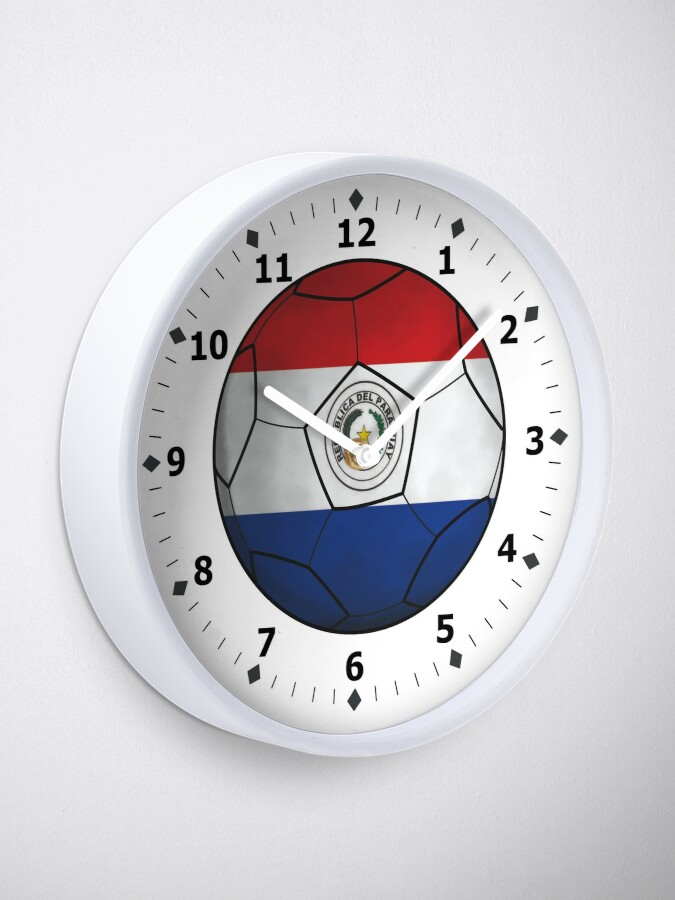
redbubble.com 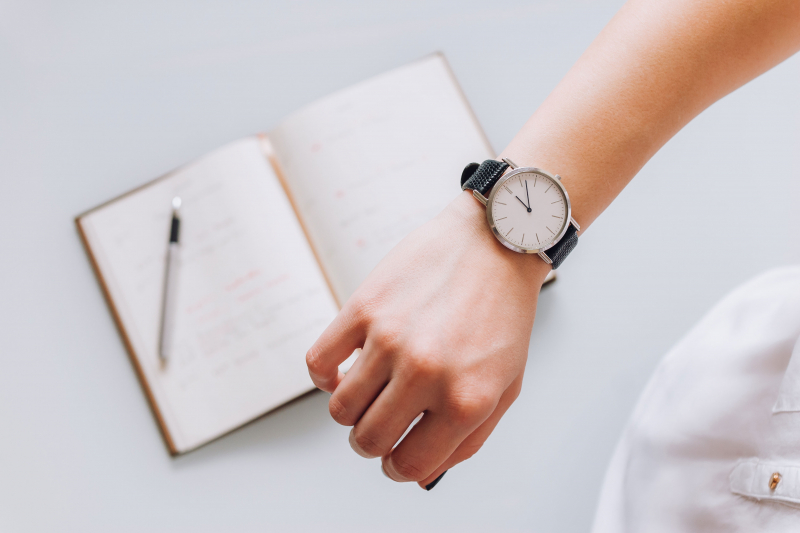
fabfitfun.com -
People in Paraguay tend to wear clothing that is made from lightweight and breathable fabrics due to the hot climate. Light colors are also preferred to dark colors for the same reason; lighter colors generally keep people cooler in hot conditions.
The style of dress is fairly formal. Adults typically do not wear shorts and adult males generally do not wear open shoes, or sandals. Women usually wear skirts or dresses rather than pants or trousers. In a casual setting, sportswear is popular. This is due to it being loose-fitting, lightweight, and comfortable.
Dress is more conservative in the countryside and rural areas than in the big cities. In large cities, many people have adopted Western standards of dress. You will likely see women wearing short dresses and skirts, with low necklines or sheer fabrics. As a foreigner, it is better to err on the side of conservatism and wear less revealing clothes. Clothing in Paraguay is similar to that in other South American countries, although people in Paraguay tend to favor louder and brighter colors.
The traditional costume of Paraguay includes a poncho, which is worn by both men and women. Women also wear a traditional shawl, which is called a rebozo. Traditional clothing is not often worn today in Paraguay. Rather, it may be worn for special occasions, for example weddings, festivals, heritage events, and other celebrations. The clothing in Paraguay has evolved over the years, so that visitors will probably not see many differences between the clothes worn in Paraguay on a day-to-day basis and those typically worn in their home country.
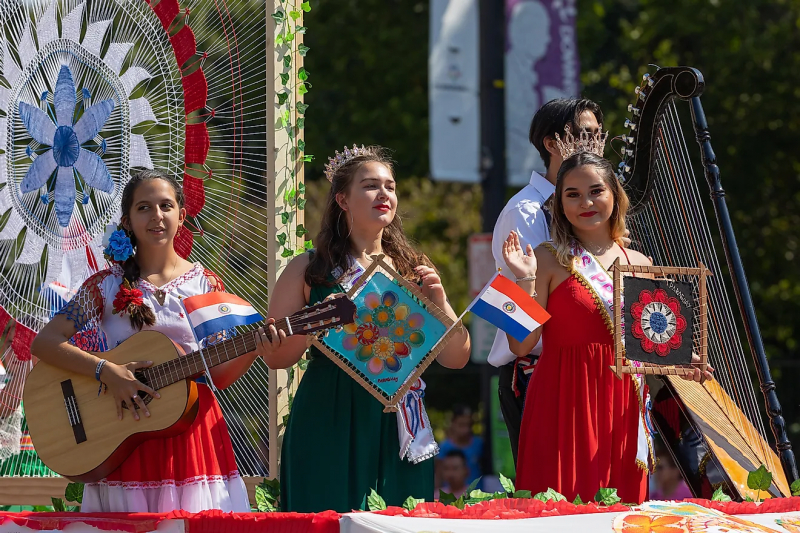
worldatlas.com 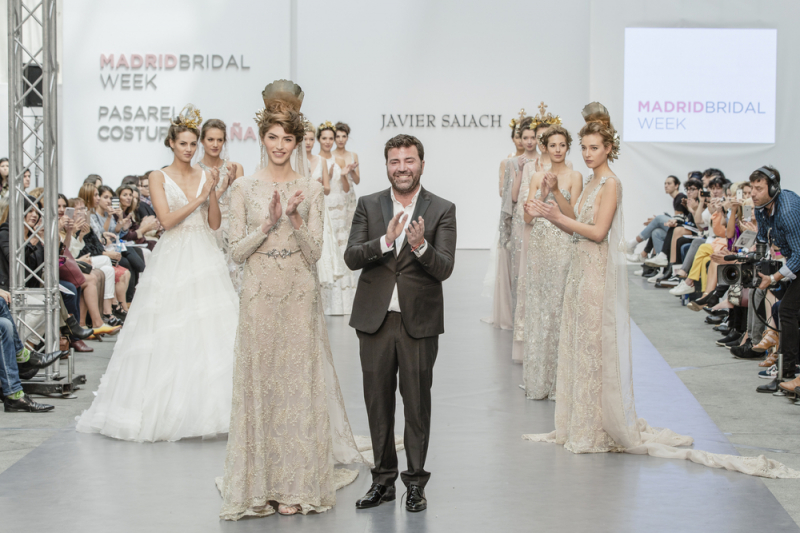
theculturetrip.com -
When in Paraguay, you should tip as often as you can. Service staff usually have low wages and generosity is well-received.
- Tipping at restaurants and bars. In small eateries, a few hundred Guaranis should suffice. In upmarket restaurants, it is common to tip 10-15% of the bill. Tips are not expected in bars but consider leaving loose change for good service.
- Tipping tour guides. Tipping tour guides is probably the most complicated tipping situation in Paraguay, simply due to the many different types of tours available. The best thing to do is to ask your tour operator how much they recommend for tips before you set off. As a general point of reference, you should think of tipping tour guides around Gs7000 per day. If it’s a challenging multiday trek or expedition and the guides and porters do a great job, then tip closer to Gs14000.
- Tipping taxi drivers. In Paraguay, locals are used to paying the exact metered fare. Drivers don't expect a gratuity but feel free to round up.
- Tipping hotel staff. Porters are tipped Gs5,000 – 10,000 per bag. Hotel maids typically receive Gs10,000 a day. Some hotels include tips for housekeeping in the bill, so you may want to check this first before you leave your tip.
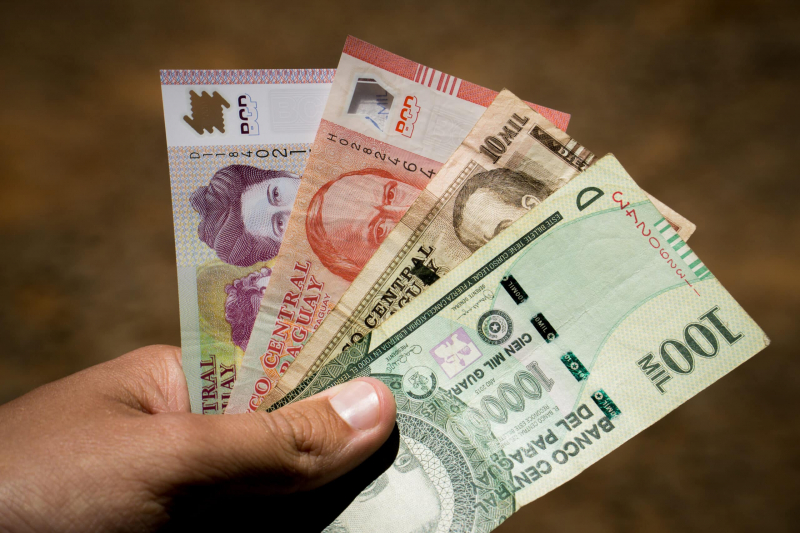
blog.remitly.com 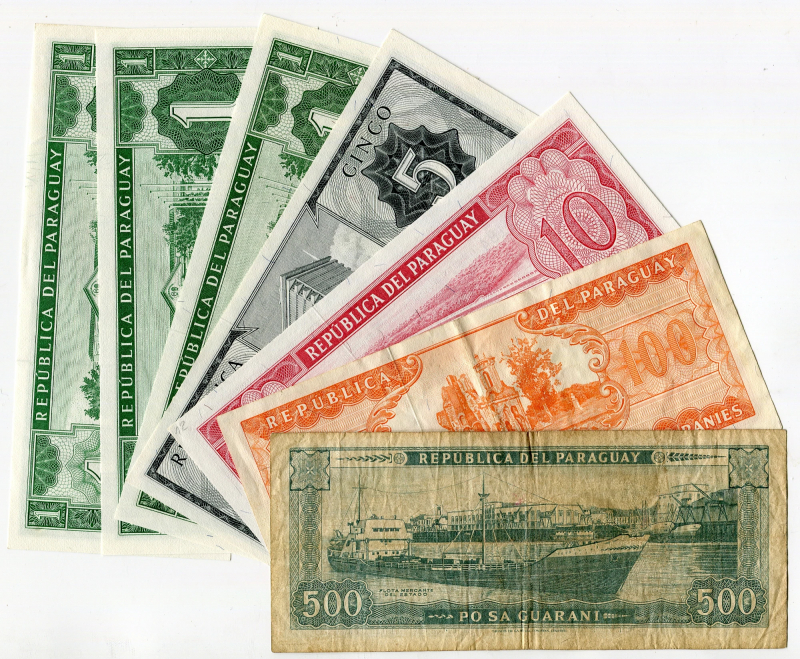
-
Except in the workplace, men and women in Paraguay always shake hands when greeting, even if for the second or third time in a day. When a woman or a man greets a female friend for the first time in a day, they may kiss each other on each cheek, as well as shake hands. Women in rural areas are more likely to just pat the other’s arm rather than a kiss. When parting, most people repeat whatever gesture was used in greeting.
Urban men are respectfully addressed by the last name, often accompanied by Don. For women, it is customary to use Doña with the first name. Professional titles are also used to show respect. Young people refer to each other by their first names. In rural areas, campesinos (farmers) often address one another by the first name, preceded by Na or Karai for women and men, respectively. Paraguayans often greet respected elders by holding their hands in prayer positions, waiting to be blessed.
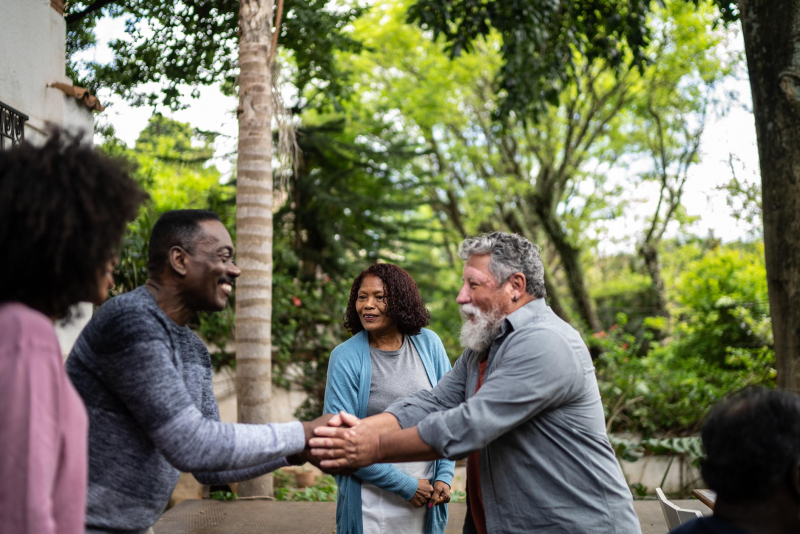
gbhi.org 
theculturetrip.com -
Most Paraguayan girls have a party at age 15 to celebrate becoming a señorita. Young people get to know each other at local fiestas, large family gatherings, dances, and other events. Any marriage partners are generally expected to be approved by parents. For a marriage to be legal, a civil wedding must be performed, but couples may also have a church wedding. Many couples enter into common-law relationships, while others have children but do not live together.
Paraguayan couples will typically save for their own weddings. Their parents will not usually pay for the weddings, and that includes the bride’s family. Paraguayan couples generally believe that it is more important to focus on what the wedding symbolizes than on the decorations or the feasts.
The couple will usually deliver their wedding invitations personally as well, because of the problems with the Paraguay postal system. Wedding receptions will have music, but they will not have dancing except for the Blue Danube Waltz. The Christian influence in Paraguayan culture has created a situation in which most dances are frowned upon at weddings.
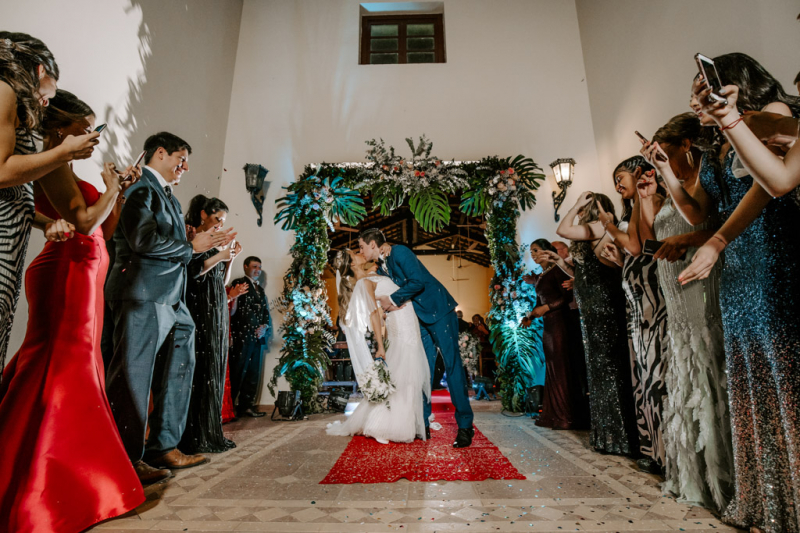
secretsbehindthescenes.com 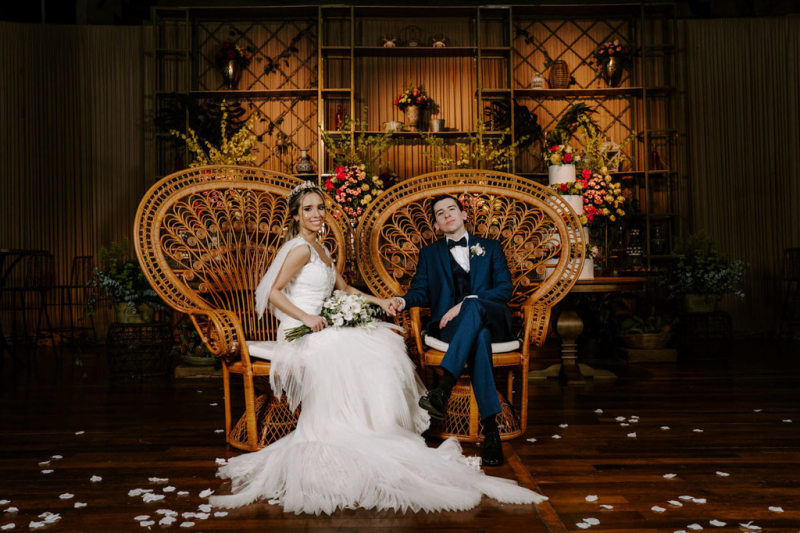
secretsbehindthescenes.com -
Roman Catholicism is the official religion of Paraguay, although there has been freedom of religion since 1967. Roman Catholicism accounts for 90% of the population. There is one archdiocese, that of Asunción, since 1929. Roman Catholic Church in Paraguayan society is much less influential than in the rest of South America.
Traditionally, the state's isolation and lack of interest in religion, in general, has resulted in varied religious practices, with the priests more in the role of healers and magicians. Protestant denominations have gained less influence in Paraguay than in some other South American countries. The number of Protestants in Paraguay is about 100,000. They are divided into 14 denominations, of which the Mennonite denomination (approximately 30,000) is the most flourishing and the largest.
Other evangelical groups, including the controversial New Tribes Mission, often had strong connections with the clique around dictator Stroessner. Most indigenous Indians have retained their own faith, although they too have often been officially converted to the Roman Catholic faith.
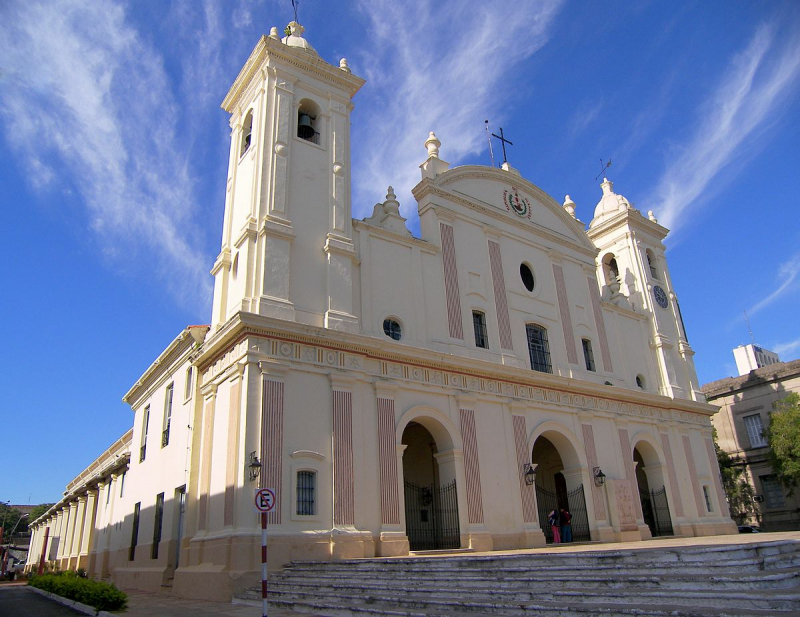
wikipedia.org 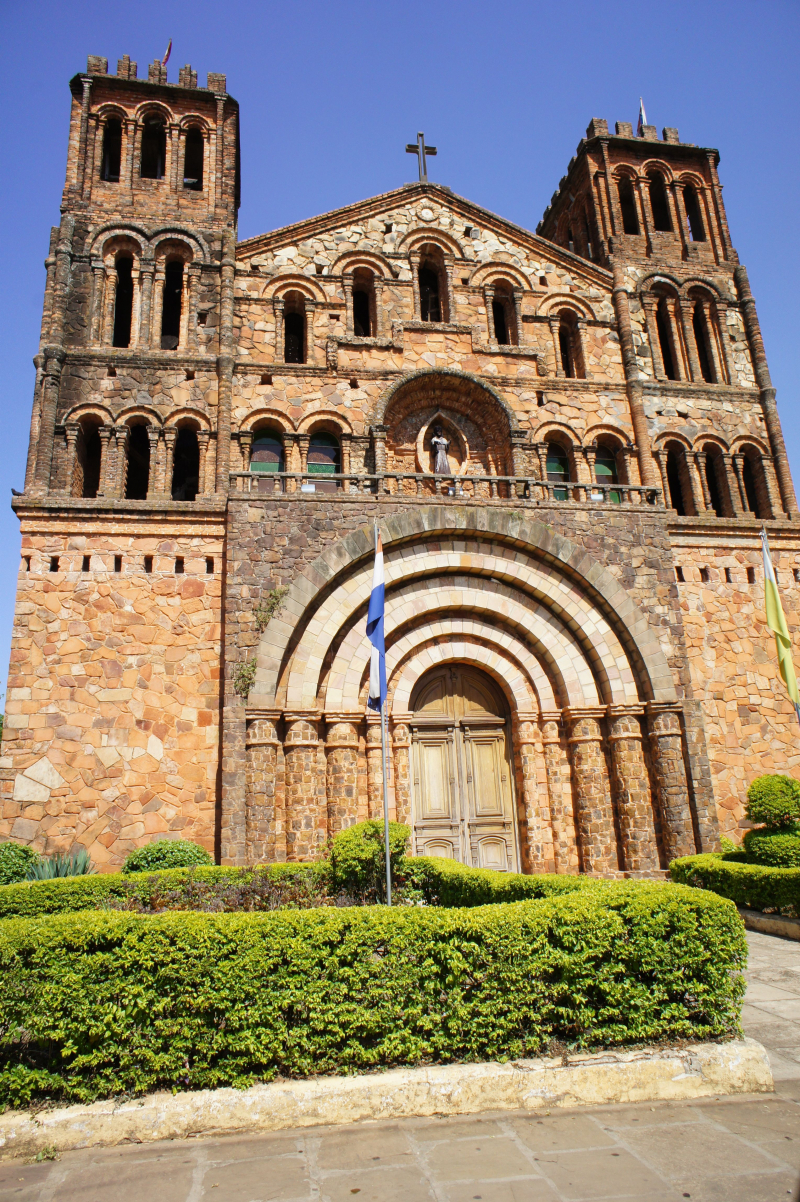
pinterest.com -
Males are expected to open doors for women in Paraguay. They should also put out their cigarettes, turn off their phones during dates or appointments, and assist them to their seats. None of these actions are intended to be flirtatious, but rather to be a gentlemanly courtesy gesture. In Paraguay, it is customary to position yourself so that your back is not facing another person. If a person's back is facing another person, he or she must excuse himself or herself.
The least a host can offer a visitor is a glass of water. Several other kinds of drinks can be offered. Do not eat during meetings. If you must eat, you should offer whatever you are eating to your guest. If you are the guest and you are offered food, you must accept. Hats and sunglasses should not be worn indoors. It is considered bad manners to sneeze, cough or yawn without covering your mouth with your hand or with a handkerchief. Blowing your nose at a table is frowned upon.
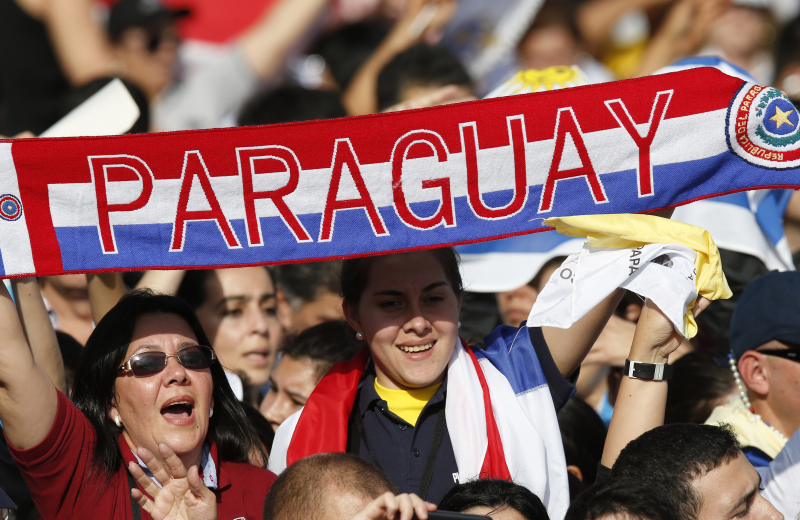
americamagazine.com 
americamagazine.com -
Families are the center of Paraguayan culture. The majority of people in Paraguay live in a family with a married couple and their children, though there is an increasing number of households with a single woman and her children. Extended family households are uncommon, though some affluent urban families will occasionally house the children of poorer relatives. The Paraguayan’s chief loyalty is to their family, and it is their main support system.
The father is the family's head and expects to be treated with respect by all other family members. In Paraguayan culture, wives are typically in charge of supervising children and managing the household, while husbands are more focused on work outside the home.
Families are traditionally conservative and protective of their children, particularly daughters. Teenage boys, for example, have much more lax curfews than their sisters. Parents expect to know when and where their children will be going. The majority of social activities, vacations, and weekends are spent with family.
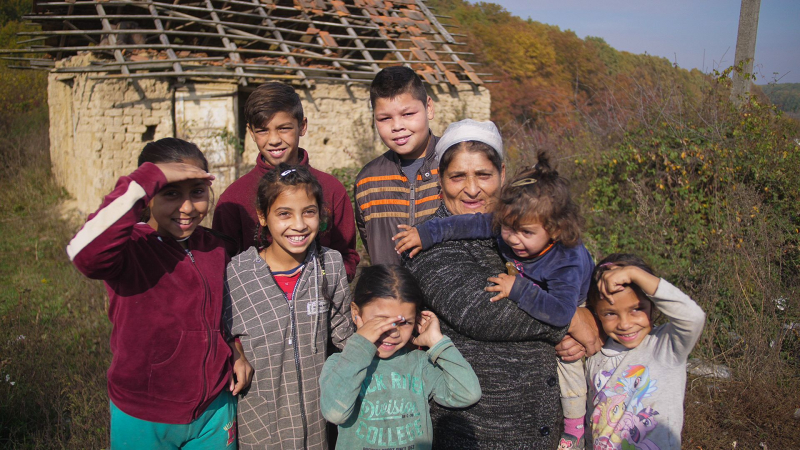
twitter.com 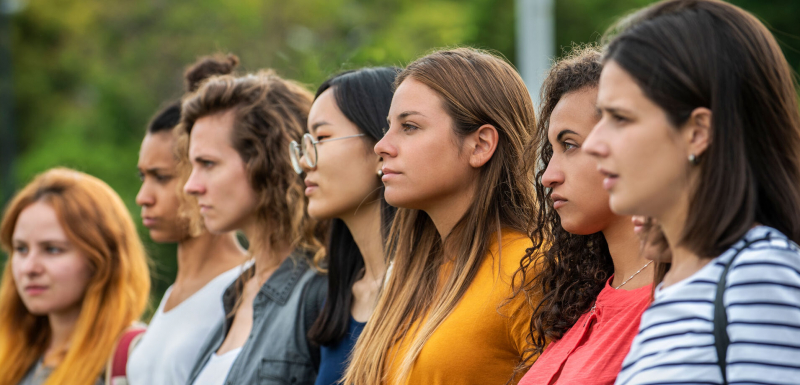
equalitynow.org






























